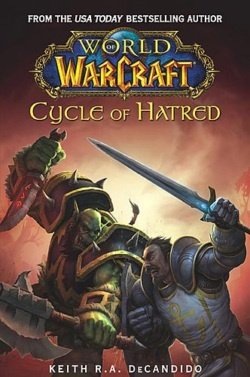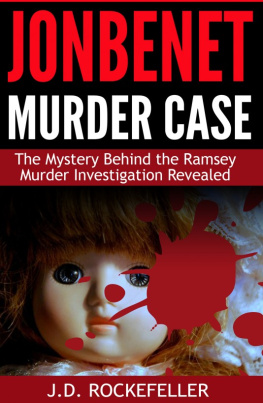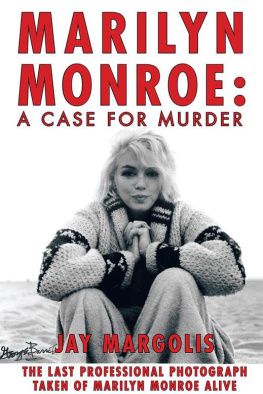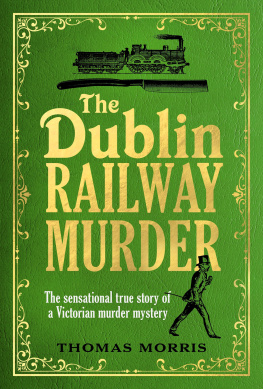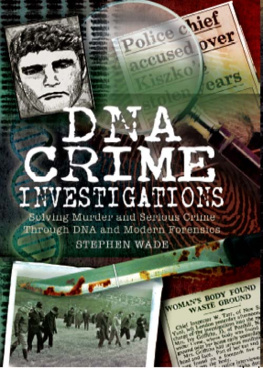
Keith R. A. DeCandido
Four Walls
The fourth book in the CSI: New York series
To Phil Rizzuto, 1917-2007.
His voice was an important part of my childhood, watching Yankee games on channel 11, and I still miss his "Holy cow" cry from the broadcast booth.
He would've loved the cannoli at Belluso's.
Rest in peace, Scooter
PRIMARY THANKS MUST GO to my wonderful editor, Jennifer Heddle, who gave me the chance to once again write a novel taking place in my hometown, the greatest city in the world.
Secondary thanks to Paul DiGennaro, who has been a corrections officer in the state of New York for many years and whose guidance was invaluable in the descriptions of life in the fictional Richmond Hill Correctional Facility. It's safe to say that I couldn't have written this book-or, at least, the bits that involve the RHCF-without Paul. Thanks also to Linda Foglia of the New York State Department of Corrections and Deputy Superintendent of Programs Edward Adler and Captain William Caldwell of the Arthur Kill Correctional Facility for the tour of the latter site, which was incredibly useful. Any deviations or mistakes in relation to prison life are entirely inventions (a nice way of saying "screwups") of the author and should not reflect on any of these fine people.
Of course, I must also thank Gary Sinise, Melina Kanakaredes, Eddie Cahill, Hill Harper, Carmine Giovinazzo, Anna Belknap, Robert Joy, Claire Forlani, Emmanuelle Vaugier, A. J. Buckley, Mykelti Williamson, and Carmen Argenziano, who all provided face and voice for many of the characters herein, thus giving me material to work with.
Although it was the inspiration for a different TV show on a different network, I have to give props to David Simon's Homicide: A Year on the Killing Streets. That's the true-crime book that got me interested in police procedure in the first place.
Huge thanks also to Reddy's Forensic Page (www.forensicpage.com), a fantastic online clearinghouse for forensic info and a researcher's dream site. Fellow CSI novelist (and forensic expert in his own right) Ken Goddard helped out with some scientific details as well. Also for sheer cool value, thanks to the good folks at CLPEx.com (Complete Latent Print Examination), who have a PDF of Francis Galton's groundbreaking 1892 book Finger Prints on their website.
The usual thanks to GraceAnne Andreassi DeCandido, who again provided an excellent first read.
Finally, thanks to them that live with me, both human and feline, for everything.
THIS NOVEL TAKES PLACE between "Comes Around" and "Snow Day," the final two episodes of CSI: NY's third season.
DETECTIVE DON FLACK STARED at the lone pill that rattled around the bottom of the prescription bottle.
A cup of coffee sat on the Formica table in front of him, steam rising toward the ceiling in the air-conditioned diner. It had certainly taken long enough for the coffee to show up. The waitress-a woman named Doris, according to the nameplate affixed to her bright pink uniform; her face was caked in enough makeup to make her look embalmed, her breath smelled like an ashtray, and her nasal voice threatened to decalcify Flack's spinal column-had ignored him for quite a while before deigning to take his coffee order.
In theory, he'd wash the pill down with the coffee.
Assuming, of course, he could bring himself to dump that last pill out into his hand.
It had been a year. A year since the explosion that nearly killed him. A year since that idiot with the headphones who didn't hear the fire alarm. Flack ran back for him.
Then the world exploded.
When he was recovering in the hospital, after it was all over, Flack sometimes wondered what would have happened if that jackass hadn't been wearing those big, stupid noise-canceling headphones. Said jackass-Flack could no longer recall his name, nor did he particularly wish to-hadn't heard the fire alarm, hadn't heard the screams of panic, hadn't heard two dozen people running for the fire stairs, hadn't heard Flack and Detective Mac Taylor screaming that there was a bomb in the building.
You usually didn't find that level of obliviousness in New Yorkers. Certainly not since 9/11.
If not for that guy, Flack might've been in the stairwell. Or at least back with Mac, farther down the hallway. Mac got out of the explosion with only a few scrapes and bruises.
Flack almost died.
But he didn't. A few months in the hospital, and he was fit for duty. He tried to avoid situations where he'd have to take off his shirt in public, as the crisscross of scars wasn't particularly pretty. Stella Bonasera and Lindsay Monroe had both ribbed him about using the explosion to flirt with women, and they hadn't been entirely wrong-but Flack hadn't shown anyone the scars.
The pain was near constant.
When it got bad, he was supposed to take the pills. But Flack defined bad differently from the docs. He avoided taking the pills. Taking the pills meant admitting to weakness.
But sometimes, Flack was weak.
Now, though, it had been a year, and a prescription bottle that was intended to last him six to eight weeks had finally run out.
When he got up this morning-earlier than usual, since he was meeting a friend for coffee-the pain was agonizing. That happened when the weather changed, sometimes. The last few days it had been unseasonably chilly, but this morning it was already eighty-eight degrees, and it was supposed to go up into the high nineties. Flack felt like someone had taken a hot knife and shoved it through his lower back up into his rib cage. (He'd been hanging around with Mac and his crime lab crew for too long-he could actually picture that happening in gory detail, something he never used to think about before he made detective.)
But there was only one pill left.
If he took the last pill, he'd have to refill the prescription and get more.
Weakness again.
Donald Flack Jr. was the latest in a long line of cops, most recently Donald Flack Sr. Cops didn't admit to weakness. On the street, they can smell that. You don't let the assholes know that there's a single chink in your armor, because they will find it and they will nail you to the wall.
So Flack tried to avoid the pills.
"Y'know, Donnie, it's been my experience that the pills work better if you swallow 'em."
Looking up, Flack saw his breakfast companion approach the table. "Hey, Terry."
Terry Sullivan squeezed his massive frame into the vinyl-covered bench opposite Flack. Sweat beaded on his pale forehead. Indicating the pill bottle with his head, he asked, "That's from the bombing, right? What they gotcha on, Percs?"
Flack nodded, pocketing the bottle in his suit jacket.
"What, you ain't gonna take it?"
"Don't need it." Even as he said the words, Flack winced as he moved his arms.
Sullivan shook his head, his shaggy blond hair flopping around. "You're so full of it, those baby blues of yours're turning brown, Donnie. Take it from the human dispensary, they prescribed them things for a damn good reason. You're in pain-take the painkillers."
"I'll be all right."
Like Flack, Terence Sullivan Jr. was dressed for work, though unlike Flack, he wasn't wearing his entire uniform. Not that Flack had a uniform per se, just the expected suit and tie. As for Sullivan, he wore clothes that identified him as a corrections officer of the state of New York-at least, they did to Flack. He wasn't wearing the light-blue shirt that would have completed the outfit, as COs generally didn't wear the full uniform outside of prison walls, but he was wearing the dark blue slacks, black boots, weapon, and belt. Said belt was filled with key clips, pouches, a radio holder (the radio was property of the prison and stayed on-site), and a lot of other stuff that reminded Flack of his days in uniform. There were several reasons why Flack liked being plainclothes, and one of the biggies was not having to carry around half the world on your belt.
Next page

